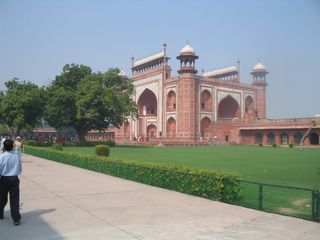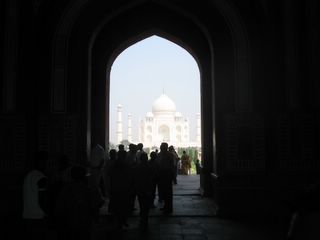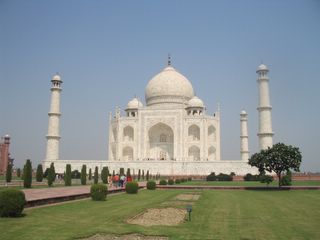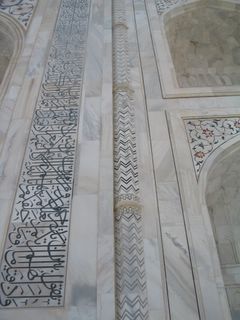"
Right-Wing Leanings Aside, Some Serious Questions."
Review in short: The author casts a critical eye on the direction British society and the nation have taken that seem to have resulted in a radicalization of the Islamic community in the country. Substantial documentation of the foibles of the British polity, intellectuals, judiciary adds heft to the message. An important and trenchant, if somewhat disturbing and critique. Many of the questions and context are eerily applicable in the Indian context too.
Longer Review.
As Britain becomes more multi-cultural and more heterogeneous a society, it has also had to face a most unfortunate consequence of this intermingling. People - immigrants - who have turned against their motherland. The London terrorist attacks of 2005 brought this problem to the forefront for much of Britain - "
The realization that British boys would want to murder their fellow citizens was bad enough." What some have perceived as a lax and permissive attitude among the intelligentsia to the sprouting of Islamic fundamentalism has led to the coinage of a pejoration: "
Londinistan" - "
a mocking play on the names of such state sponsors of terrorism as Afghanistan", and the despair that London itself has become "
the major European center for the promotion, recruitment and financing of Islamic terror and extremism." This book, then, is a scathing look at the players that have led to, in the author’s view, a surrender to the forces of Islamic fundamentalism in Britain.
In the author’s view, and backed by considerable data, such a pejoration - the term ‘Londonistan’ - may not be without merit, especially if one considers the vast numbers of Britons engaged in nefarious activities. "
According to British officials, up to sixteen thousand British Muslims either are actively engaged in or support terrorist activity, while up to three thousand are estimated to have passed through al-Qaeda training camps, with several hundred thought to be primed to attack the United Kingdom."
The author has tackled different aspects of this issue in a separate chapter each. Therefore, in chapter two, for instance, she takes on the lax immigration system for the uncontrolled influx of people claiming persecution in their home countries, so much so that "
many Islamist terrorists and extremists found Britain to be such a delightful and agreeable destination." She harshly condemns "
Ministers and officials in charge of the asylum system" as being "
among the least likely to possess either the intellectual or the political clout to tackle the problem". She also pillories the European Court of Human Rights for extending "
the scope of the provision in the European Convention on Human Rights that prohibits torture or degrading treatment" as it became "
impossible to deport illegal immigrants - including suspected terrorists - to any place where the judges thought such abuses might be practiced." Worse was the British judiciary, while "
independent of political control", came to "
see themselves, rather than the democratically elected politicians, as the true guardians of the country’s values."
To take a more detailed look at some of the arguments put forth in the book, let us start with the evidence that points to a radicalization of Muslims in the UK itself. To that end there is an impressive array of facts the author marshals to argue the point that, to begin with, UK has played host to terrorists and organizations with terror-links, unequivocally.
"UK-based terrorists have carried out operations in Pakistan, Afghanistan, Kenya, Tanzania, Saudi Arabia, Iraq, Israel, Morocco, Russia, Spain and the United States."
"And the number of terrorists who have come roaring out of these polluted British waters is startling. UK-based terrorists have carried out operations in Pakistan, Afghanistan, Kenya, Tanzania, Saudi Arabia, Iraq, Israel, Morocco, Russia, Spain and the United States. The roll call includes Ahmed Omar Saeed Sheikh, killer of the journalist Daniel Pearl and disaffected, brilliant son of Pakistani immigrants; Dhiren Barot, Nadeem Tarmohammed and Qaisar Shaffi, British citizens and al-Qaeda members who plotted to attack major financial centers in the United States; Mohammad Bilal from Birmingham, who drove a truck loaded with explosives into a police barracks in Kashmir; the "shoe-bomber" Richard Reid, who was converted to Islam at Brixton Mosque in south London; Sajid Badat from Gloucester, a putative second shoe-bomber but who was also caught and is now in jail; and Omar Khan Sharif and Asif Mohammed Hanif, the British boys who helped bomb a Tel Aviv bar in 2003 and killed three Israeli civilians. And let’s not forget Azahari Husin or the "Demolition Man," the Malaysian engineer who belonged to the al-Qaeda-linked terrorist group Jemaah Islamiyah ( JI). He had studied at Reading University in the 1980s, honed his bomb-making skills in Afghanistan in the 1990s, helped mastermind the terrorist attacks in Bali (twice) and finally blew himself up in a gun battle with Indonesian police in November 2005."
"One of the world’s most radical Islamist organizations, Hizb ut-Tahrir, which is banned in many countries where it is considered a major threat, has its headquarters in Britain."
"Scarcely less significant is the European headquarters of the radical proselytizing movement Tablighi Jamaat at Dewsbury in Yorkshire."
"Al-Sunnah, the Islamist magazine that calls repeatedly for human-bomb terror operations against the United States, is published from London,"
"Indeed, one could say that it was in Britain that al-Qaeda was actually formed as a movement."
"Many of Osama bin Laden’s fatwas were first published in London."
"The foiled millennium plots of 1999 and 2000, when al-Qaeda planned a series of attacks in Europe, the United States and the Middle East, all led back to London."
You know things were bad when Egypt "
denounced Britain as a hotbed for radicals" after "
Abu Hamza welcomed the massacre of fifty-eight European tourists at Luxor in October 1997". Abu Hamza was "
an Egyptian-born former engineering student and nightclub bouncer, who had lost an eye and an arm in Afghanistan and sported a hook instead of a hand", and was allowed to live and preach in Britain for several years, till he was finally jailed in "
February 2006 for soliciting murder and inciting racial hatred"
It is useful to describe the term Islamism itself as it is used extensively in the book. "
Islamism is the term given to the extreme form of politicized Islam that has become dominant in much of the Muslim world and is the ideological source of global Islamic terrorism." The author states "
It derives from a number of radical organizations", prominent among them being the Tablighi Jamaat in India/Pakistan, the Muslim Brotherhood ("
which was founded in Egypt by Hassan al-Banna with Sayed Qutb its leading ideologue. Its creed is known as Salafism and is deeply antisemitic; this is virtually indistinguishable from Saudi Arabian Wahhabism"), and "
the Jamaat al-Islami, founded by Sayed Abu’l Ala Maududi in India/Pakistan"
So how did such a radicalization came to happen? And why wasn't anything done about it? Were the Muslims residing in Britain, all 1.6 million out of a population of 60 million, siding with the terrorists? Were they sympathizing with these Islamists? No, not quite, argues the author, and there is nuance to the "no".
"
In Britain, hundreds of thousands of Muslims lead law-abiding lives" However, and this is where the nuance appears, in the author’s opinion, the majority of the pacifists need to be more vocal about their abhorrence for Islamist violence, and more disturbingly, moderation among them is relative, "
considering their widespread hostility towards Israel and the Jews, for example, or the way in which the very concept of Islamic terrorism or other wrongdoing is automatically denied."
More disturbingly, for Britain, there has also been this barely hidden desire within the British Islamic community to see more Islamization in society in general. Consider this:
"A poll conducted by the Guardian newspaper found that 61 percent of British Muslims wanted to be governed by Islamic law, operating on Sharia principles - "so long as the penalties did not contravene British law." A clear majority wanted Islamic law introduced into Britain in civil cases relating to their own community. In addition, 88 percent wanted to see British schools and workplaces accommodating Muslim prayer times as part of their normal working day."
This is perhaps by no means unsurprising - if a community wants more elements of its traditional jurisprudence to be integrated into their adopted country. Perhaps. But what about taking offence at the slightest pretext? What about self-censorship because of fear of causing offence to the easily-offended by vocal minority among Muslims?
"Novelty pig calendars and toys were banned from a council office in case they offended Muslim staff. Ice creams were withdrawn from the Burger King chain after complaints from Muslims that a whorl design on the lid looked like the word "Allah." Various councils banned the concept of Christmas, on the grounds that it was "too Christian" and therefore "offensive" to peoples of other faiths"
Or
"There are now more than 140 housing associations in England catering to ethnic minorities; one of them, the Aashyana in Bristol, provides special apartments for Muslims with the toilets facing away from Mecca."
So, why not debate this issue? After all, these are fairly existential questions for British society, one would assume. But here one has to tread carefully. It is easy for such debates to get hijacked by extremists on both sides, and for stereotype-driven accusations to fly fast and furious.
"One of the reasons why people shy away from acknowledging the religious aspect of this problem is, first, the very proper respect that should be afforded to people’s beliefs and, second, the equally proper fear of demonizing an entire community. There is indeed a risk of such a discussion exposing innocent Muslims to attack."
If the majority of Muslims in Britain do not agree with or subscribe to the extremist views of those within their community, then they need to be more vocal about it. Which they are not. "
If "moderation" includes reasonableness, truthfulness and fairness, the reaction by British Muslims to the London bombings was not moderate at all. Yes, they condemned the atrocities. But in the next breath they denied that these had had anything to do with Islam. Thus they not only washed their hands of (sic) any communal responsibility but - in denying what was a patently obvious truth that these attacks were carried out by adherents of Islam in the name of Islam - also indicated that they would do nothing to address the roots of the problem so as to prevent such a thing from happening again."
It is not as if there is no one speaking out against the Islamists from within the Muslim community. The most eloquent case for the Muslim community to speak against terrorism perhaps comes from Mansoor Ijaz, who wrote in the Financial Times, "
It is hypocritical for Muslims living in western societies to demand civil rights enshrined by the state and then excuse their inaction against terrorists hiding among them on grounds of belonging to a borderless Islamic community. It is time to stand up and be counted as model citizens before the terror consumes us all."
Dissenting voices are often either silenced or threatened into submission. "
Reda Hussaine is an Algerian journalist who started inquiring into Algerian radicals in London after his Paris office, where he was trying to start up an independent Algerian newspaper, was ransacked in 1993. The French police told him that the attack had been organized from London, that the group responsible was sending money to terrorists in Algeria, and that Abu Qatada was behind it."
What about representatives of the Muslims in Britain? You know you may have a problem of sorts when Sir Iqbal Sacranie, secretary-general of the Muslim Council of Britain, "
regarded by the British establishment as the most reliable mainstream voice of the Muslim community", compares "
Hamas suicide bombers to Nelson Mandela and Mahatma Ghandi (sic)."
Or take the words of Tariq Ramadan, who, according to "researcher Caroline Fourest", "
speaks with two voices". When "
asked whether he approved of the killing of an eight-year-old Israeli child who would grow up to be a soldier, he replied: ‘That act in itself is morally condemnable but contextually explicable,'"
A piece in the middle of the book is very illuminating in shedding some light on the topic of Islamopobia. She quotes Kenan Malik, "
"antiracist" Asian writer", who suggests that "
Islamophobia is a myth and is being exaggerated to suit politicians' needs and silence the critics of Islam: The more the threat of Islamophobia is exaggerated, the more ordinary Muslims believe that they are under constant attack. It helps create a siege mentality, it stokes up anger and resentment, and it makes Muslims more inward looking and more open to religious extremism. It also creates a climate of censorship in which any criticism of Islam can be dismissed as Islamophobic. The people who suffer most from such censorship are those struggling to defend basic rights within Muslim communities"
Islamic theologians are not to be left behind in strengthening the needle of suspicion that some harbor against Islam.
"In 1980, the Islamic Council of Europe published a book called Muslim Communities in Non-Muslim States, which explained the Islamic Agenda in Europe. When Muslims lived as a minority, it said, they faced theological problems, because classical Islamic teaching always presupposed a context of Islamic dominance. The book told Muslims to organize themselves with the aim of establishing a viable Muslim community, to set up mosques, community centers and Islamic schools. The ultimate goal of this strategy was that the Muslims should become a majority and the entire nation be governed according to Islam."
This is a deliberately and dangerously confrontationalist approach to take, and its effects can be seen even in the beliefs slowly gaining ground among Muslims in Britain.
In all this, it would be awfully remiss to not take a look at politicians and politics. It is a universally acknowledged truth that an amoral politician in need of electoral safety will seek refuge in divisions in society. This has been true with Indian politicians for over half a century, and it should be of no surprise to people that Britain is no different.
"Labour was traditionally the party that appealed most to new immigrants, and Britain’s Muslims were no exception. Many Labour MPs, including the foreign secretary, Jack Straw, found themselves representing constituencies with significant Muslim populations. This had a number of consequences, one of which was that some Labour politicians allowed Pakistani politics to influence British politics." And thus you come across the concept of "vote-banks" in Britain. "
On the day of the 2005 British general election, Faisal Bodi wrote in the Guardian: "
Labour politicians have cultivated the "community leader", the modern-day equivalent of the village chief, whose unique selling point is that he can bring in the vote of the particular ethnic sub-category he belongs to, be it by fair means or rigged postal votes." This seeking of votes goes beyond the shores of the island nation. "According to the bishop of Rochester, Dr. Michael Nazir-Ali, himself of Pakistani origin, a number of Labour MPs with large numbers of Muslim voters need the support of various Islamic leaders in Pakistan who tell their followers in Britain how to vote."
It is a reasonable expectation that the media engender debate on topics that are of interest and of importance to society. In the author’s opinion, when it comes to discussing Islamism in Britain, the media has practiced self-censorship at best, if not outright intellectual dishonesty. Two incidents cited are the murder of "Theo van Gogh, the Dutch filmmaker who was killed for questioning Islamic attitudes to women", or the protests "over the publication in Denmark of a batch of cartoons linking the Prophet Mohammed with violence".
If Muslims, even those born and raised in Britain, were to take up terrorism, surely the fault could not be all lain at the door of either Islam, or radical Islam, or the Muslim community. That is only a very reasonable position to take. The author is also on board with this position. So the fault must be shared with Britain also, right? Yes, sort of. The author seizes upon the ‘liberal’ ethos and casts an accusatory finger upon it. Things get wider in scope from here. But let’s look at the author’s articulation. The author believes that the process of radicalizing started more than three decades ago, in the 1970s, when Muslim immigrants arrived in large numbers from "Pakistan, Bangladesh and India" to "
work in the cotton mills in England’s northern industrial towns such as Bradford and Burnley, Oldham and Rotherham." These immigrants' faith was "
largely influenced by introspective, gentle Sufism and was thus passive and quiescent." But all that changed in "
in the space of a few years" and "
it became an increasingly activist faith centered on the mosques, which were transmitting a highly radicalized ideology." "
Such young men, stranded between the mores of Mirpur village life on the one hand and the degraded nihilism of British "liberal" society on the other, are thus easy prey for the puppet-masters of terror."
Ok, if she says so. And then there is a roadhouse punch at Islamic society itself:
"What makes these fragile egos yet more vulnerable still, moreover, is the pathological inferiority complex that afflicts Muslim society, the exaggerated notions of shame and honor which mean that every slight turns into a major grievance, disadvantage morphs into paranoia, and Islam itself is perceived to be under siege everywhere."
One gets the impression that she really wanted to take a sledgehammer at all of Asian Third World, but perhaps thought it more politically correct, in a manner of speaking, to direct this broadside against Muslim society, obligatory refrains of avoiding stereotyping notwithstanding.
So why are liberals to blame for this? Well, if I understand the line of thinking taken by the author, and this is a simplification, it is because liberals hate capitalism and capitalists. The United States is the embodiment of capitalism. Preconceived notions and stereotypes of Jews mean that Jews are associated with capitalism. Hence the liberal hatred of Jews. Fundamental Christians have, on their part, believed, and have been taught, that Jews murdered Jesus. Hence Jews are evil, and hence Jews need to be eliminated. There is an actual theological doctrine that exists to justify this. Known as "
"replacement theology," or "supercessionism,", it goes like this: "
going back to the early Church Fathers and stating that all God’s promises to the Jews - including the land of Israel - were forfeit because the Jews had denied the divinity of Christ. This doctrine lay behind centuries of Christian anti-Jewish hatred until the Holocaust drove it underground." Islamists, on their part, have bought into the wholesale portrayal of of Jews as evil - "
Drawing on a theological animosity, it is based on the belief that the Jews are a Satanic force and a conspiracy to destroy Islam and rule the world; and that, since the Jews control Western society, it follows that Israel is the forward flank of the West's attempt to subjugate Muslims everywhere ... Fixating upon the early conflict between the Prophet Mohammed and the Jewish tribes of seventh-century Arabia, the Islamists became obsessed with the archetype of a universal Jew, treacherous by nature, whose perfidy threatened not only Islam but all humanity."
The enemy of my enemy is my friend, and hence the liberal’s chumminess with Islamists. One can see strong traces of this line of thinking on the part of liberals also manifest itself in India, where there is a strong aversion to criticism of Islamic terrorism, or to ask searching questions of Islamists in India who covertly or overtly broadcast messages of hate against non-believers.
Conclusion:
The book has what I would call a definite right-wing, nationalist, Christian conservative slant. The author herself does not shy away from it. She argues that these are in fact required for the maintenance of peace in British society. If, however, it was just that, the book could have been easily dismissed. However, what elevates the book from the ranks of a xenophobic screed is the fact that it is well-researched, disturbing, and thought-provoking. Yes, there is a selective cherry-picking of facts and a selective interpretation too, but even taking both into account, this book still raises several questions about the direction the nation of Britain is taking, the culpability of its politicians, and whether its Muslim clergy and intellectuals wants their community to be held hostage to the philosophy of its fringe fundamentalists.
The other issue that people may find with the book is its sweeping pronouncements heralding the end of Britain and of Western society in general. Consider this, "
What if, instead of holding the line for Western culture against the Islamic jihad, Britain is sleepwalking into the arms of the enemy?" Or "
In the United States, at least there are wars over culture; in Britain, there has been a rout."
In some cases the flowery prose is outright bizarre. Like where she writes, "
helping sow the dragon’s teeth from which would spring the killers". I stopped counting how many metaphors had been mixed and mangled.
For Indians this book should hold an added element of interest. The reason should not be difficult to find. Terrorism, especially terrorism inflicted in the name of and by radical Islamists, has been borne by India for over twenty years. Many of the topics that the book dwells upon are equally germane in India too. Any and all attempts to debate the theological basis for such radicalism are quickly shouted down by equally radicalized voices.
Lastly, it is somewhat ironic that Britain today stands at the junction of trying to assimilate heterogeneous cultures, religions, and identities, while still providing enough space for these identities to preserve their uniqueness. It is after all Britain that pursued a considered policy of racial and religious divisiveness in the Indian subcontinent for two centuries. Whether it was to make caste the sole differentiating factor among Hindus, or using a manufactured Aryan Invasion theory to divide North and South Indians, or pitting Hindus vs. Muslims, it was all part of what Lord Elphinstone called a "divide et impera" policy. One is tempted, almost, to use the phrase that the chickens have come home to roost, or the other phrase that stings even more - "as you sow, so shall you reap".
en.wikipedia.org/wiki/Londonistan_(term)
www.melaniephillips.com/londonistan

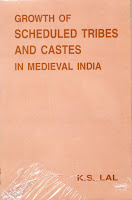


.JPG)
.JPG)












